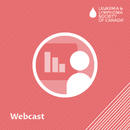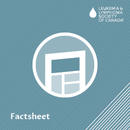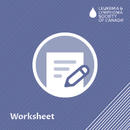Resource Library
Showing 121 to 130 of 333 results
Acute lymphoblastic leukemia (ALL) affects immature white blood cells called lymphoblasts and can progresses quickly without treatment. Dr. Dawn Maze, a member of the Leukemia Program and the Elizabeth and Tony Comper MPN Program at the Princess Margaret Cancer Centre, addresses treatment of acute lymphoblastic leukemia, advances in research and management…
Chronic lymphocytic leukemia (CLL): Advances in research & treatment: 2024 Leukemia Conference, LLSC
Chronic lymphocytic leukemia (CLL) is the most common type of leukemia in adults and can vary from person to person. This is why a one-size-fits-all treatment approach is not optimal. Research advances in how we treat CLL are discussed by Dr. Anthea Peters, Hematologist at the Cross Cancer Institute in Edmonton, and Associate Professor, Department of…
Chronic myeloid leukemia (CML): Treatment options, minimizing side effects, 2024 Leukemia Conference
Chronic myeloid leukemia (CML) is a rare type of leukemia that can happen when cells that make the blood develop a genetic change called BCR-ABL1 (Philadelphia chromone). Dr. M. Lynn Savoie, hematologist at Tom Baker Cancer Centre in Calgary, Alberta, discusses treatment options, including hematopoiesis stem cell transplants, and ways to minimize side…
You or your loved one has been diagnosed with chronic myeloid leukemia (CML).This booklet was designed to answer some questions you may have about chronic myeloid leukemia (CML). It summarizes what CML is and its phases, as well as treatment options available in Canada and their side effects.
CML is a rare type of leukemia (about 15% of all new cases of leukemia are CML) that occurs when a person has a Philadelphia chromosome or another mutation which expresses a new gene (BCR-ABL) inside certain blood cells, causing the bone marrow cells to make too many white blood cells. The Philadelphia chromosome is present in 95% of people with CML, but it…
A blood cancer diagnosis can be overwhelming for children. This illustrated resource is designed to help parents understand the emotions their child may be going through and is offering strategies to manage them.
GvHD is a serious health complication that can result from an allogeneic stem cell transplant. It can happen when donor cells (graft) mistakenly attack the transplant recipient’s (host) tissue and cells.
There are various treatments, depending on whether you have acute or chronic GvHD. Acute GvHD which usually develops within 100 days of an allogeneic stem cell transplant, and chronic GvHD (cGvHD), which develops more than 100 days after the transplant.
Learn how to care for skin, nails, hair, and mouth during and after cancer treatments.
This booklet provides a closer look at acute lymphoblastic leukemia in children, the treatments available, and the side-effects your child may experience.



